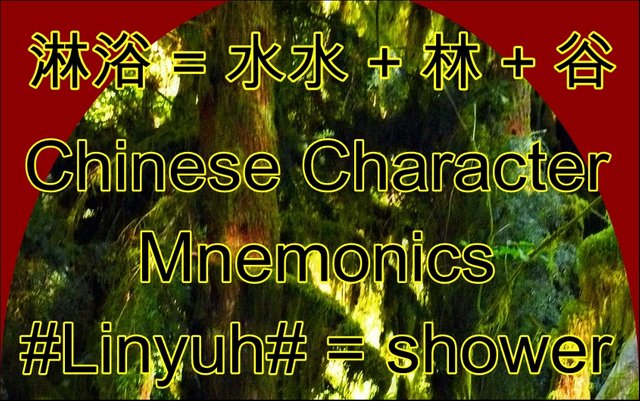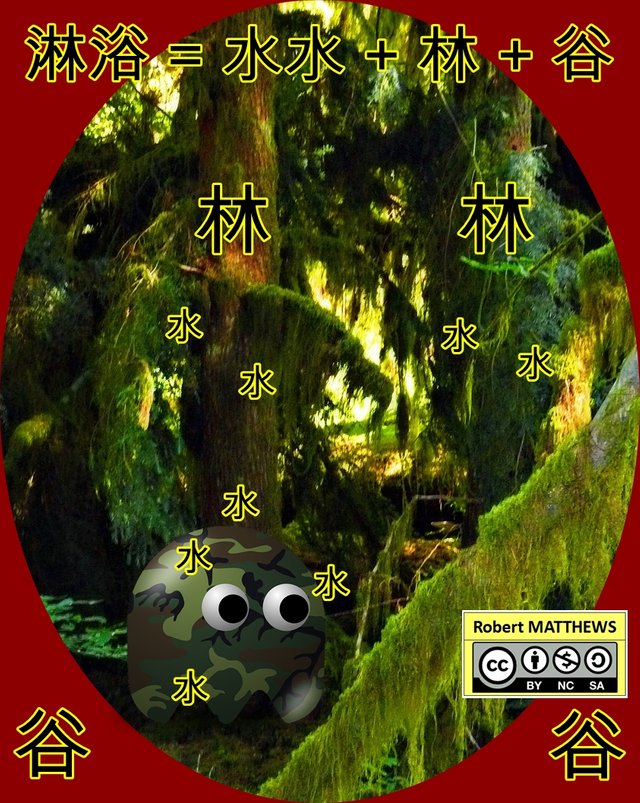
For 1900 years, character analysis has helped Chinese children remember the structure of Chinese characters. Unfortunately, some character analyses, such as the ones in 說文解字 Shuōwén Jiězì / Shuowen jieetzyh “Explanation of Writing and Analysis of Characters” (one of the earliest Chinese dictionaries) [https://en.wikipedia.org/wiki/Shuowen_Jiezi] and similar books have been incomplete or mistaken: the author, 許慎 Xǔ Shèn / Sheu Shenn, did not have access to 甲骨文 jiǎgǔwén / jeaguuwen Oracle Bone Script [https://en.wikipedia.org/wiki/Oracle_bone_script], the earliest form of systematic Chinese writing.
Another problem is that Chinese dictionaries in general do not explain the structure of compound words (most words in modern Chinese are made of two or more syllables). On Quora, a foreigner recently asked for help remembering the compound 淋浴 línyǔ / linyeu, a modern word which means “shower” (Chinese traditionally took baths instead of showers, so a new word had to be coined).
In my answer, I provided two techniques:
(A) A sound-based explanation:
淋浴 línyù / linyuh sounds like a more common word 淋雨 línyǔ / linyeu, to get wet (from being in the rain). Here is a sample sentence (from a Google search: http://jgospel.net/family-community/chinese-in-ny/) {紐約街頭劉僑一張為兒子撐傘擋雨的照片感動百萬網民}
劉僑表示,他完全沒想到自己會被拍下並爆紅,而將雨傘全部給兒子遮、自己淋雨只是非常自然的本能。
Liú qiáo biǎoshì, tā wánquán méi xiǎngdào zìjǐ huì bèi pāixià bìng bàohóng, ér jiāng yǔsǎn quánbù gěi érzi zhē, zìjǐ línyǔ zhǐ shì fēicháng zìrán de běnnéng. / Liou Cheau beaushyh, ta wanchyuan mei sheangdaw huey bey paishiah binq bawhorng, erl jiang yeusaan chyuanbuh geei erltz je, tzyhjii linyeu jyy shyh feicharng tzyhran de beenneng.
Liou Cheau said he never expected to be photographed and become famous: Using his umbrella to keep his son completely dry while allowing himself to get wet felt like a completely natural thing to do.
(B) A graphic explanation:
B1. The characters 淋 and 浴 both include a water radical 氵(never used alone), a simplified form of the character 水 “water” (an independent character).
B2. The character 淋 lín / lin “get wet” and 水 shuǐ / shoei “water”; The character 林 lín / lin “grove” consists of two 木 mù / muh “trees” (two trees = a grove, three trees = a forest)
B3. The character 浴 yù / yuh “bath” consists of 水 shuǐ / shoei “water” and 谷 gǔ / guu “valley”

Chinese word mnemonic for LINYUH (shower) = water & trees & valley, 淋浴 = 水水 & 林 & 谷
All of the elements are now in place for the telling of a fanciful story. An exhausted soldier who has been climbing a mountain glances over the peak and sees a valley beneath him full of trees. He stands under the trees and enjoys a refreshing shower created by water dripping from the foliage above his head: 淋浴 línyǔ / linyeu, “shower” (水 water from 木 the trees in 谷 the valley).
If you liked this post, you might also like these:
https://steemit.com/cn/@wentong-syhhae/chinese-for-false-beginners-a-thinker-s-approach
https://steemit.com/cn/@wentong-syhhae/the-tyranny-of-chinese-spelling-the-passionfruit-case
https://steemit.com/cn/@wentong-syhhae/chinese-easy-to-learn-but-a-good-foundation-is-needed
Who I Am
https://steemit.com/introduceyourself/@wentong-syhhae/enthusiastic-intp-polyglot